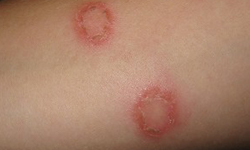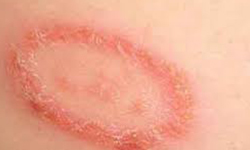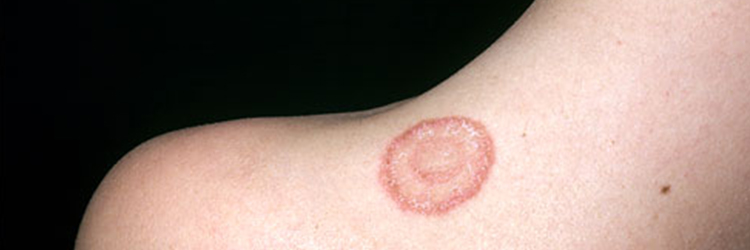Have you ever noticed an itchy red spot on your skin? Then you’ve probably suffered from ringworm. A common fungal infection, ringworm can leave an unpleasant looking reddish ring on a patch of your skin causing discoloration of your nails while also causing temporary hair loss.
Therefore, understanding the causes and symptoms of ringworm will help you protect yourself from it. Fortunately, there are a number of simple treatments that are readily available. So, let’s take a look at the causes and symptoms of ringworm and how you can treat ringworm and prevent it.
CAUSES AND SYMPTOMS OF RINGWORM

The most noticeable symptom of ringworm is an itchy, scaly, circular rash on the skin. In some cases, you might find the infection spreading to the nails and causing discolouration, hardening, and gradually fragmenting of the nails.
TREATMENT AND PREVENTION OF RINGWORM

If you want to keep ringworm at bay for good you just need to take a few simple preventive steps.
The most important step being to keep your skin dry at all times since the fungi that causes ringworm thrives in a moist environment. If your feet are most susceptible to ringworm, you should ensure they stay dry. If you sweat a lot or especially during rains, make sure you remove your wet socks and shoes as soon as you can to protect your skin from being exposed to excessive moisture.
As you already know, ringworm is a highly contagious skin condition. Therefore, if you know someone who’s suffering from this disease make sure they’ve received treatment for the same and limit your contact with them. Avoid sharing your clothes, towels, shoes or hairbrushes with strangers to avoid contracting the disease from them.
Like we’ve mentioned before, ringworm can even spread from animals to people. So, if you have a pet at home, avoid petting them until they’re completely healed from the disease and if you play with the pet, wash your hands immediately after, with an antifungal soap. Fortunately, ringworm is as easily treatable for animals as it is for humans.
Because it is so common, ringworm can affect anybody but with a few preventive measures you can keep this skin condition at bay and keep your risk of contracting it to a bare minimum. However, if the ointments and other medications are still not working and you’re still concerned about the symptoms, you can get in touch with our licensed and expert dermatologists at the Skin and Hair Academy for appropriate treatment.














